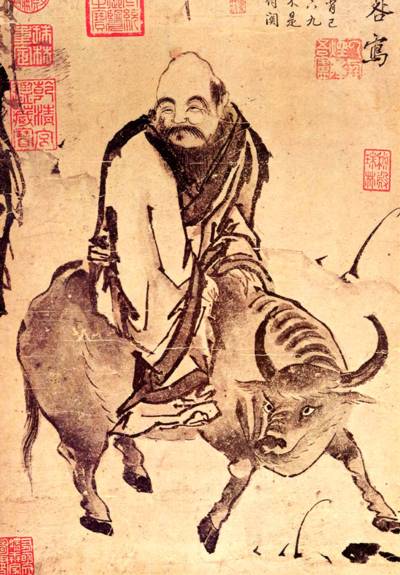Idler Q&A (2)
By:
September 24, 2011

As previously announced, Mark Kingwell and I have collaborated on a sequel to our 2008 book, The Idler’s Glossary. Available for sale now, The Wage Slave’s Glossary is (like its predecessor) designed and illustrated by the great cartoonist Seth.
Published just before the Great Recession of 2008, the Idler’s Glossary took an irreverent approach to the centrality of work in our daily lives. Mark’s Introduction argued that the values of work are too dominant in too much of life… and noted that they’ve created a host of phrases and terms which help sustain the fiction that work as we know it is a natural, inevitable, and permanent state of affairs. My glossary commented on two hundred-plus such phrases and terms, in alphabetical order, from Amusement, Beautiful Loser, and Couch Potato to Truant, Vacation, and Whiling Away the Hours.
In October 2008, Mark and I were interviewed by Brandeis University’s student-run newspaper, The Justice. Here’s that interview.
JUSTICE: When I first picked up The Idler’s Glossary, I thought I was opening up a book form of the Urban Dictionary and other amusing texts of the like. But, after reading the introduction, it almost seemed like you had made a philosophical manifesto out of idling — equipped with a glossary! What was your intention in creating this book?
GLENN: You’re right — the book is not a manifesto equipped with a glossary. In fact, The Idler’s Glossary doesn’t support any text, unless you agree with a very flattering, hyperbolic line in Mark’s introduction, where he suggests that “the ur-text for which this glossary is definitive must be, in the end, life itself.” My intention in writing the Glossary was two-fold. I wanted to make a contribution but without working too hard at it, to the obscure but age-old tradition of defending “idleness so called, which does not consist in doing nothing, but in doing a great deal not recognized in the dogmatic formularies of the ruling class,” as Robert Louis Stevenson once put it. And I also wanted to distinguish between the slacker — a person who is failing to work, or who ought to be at work but isn’t — and the idler, who somehow transcends the imperatives of work. For example: the idler demands free time; the slacker settles for mere leisure time. The idler dreams; the slacker daydreams. The idler naps; the slacker dozes at his desk. Writing a glossary seemed to me an undemanding, non-didactic way to draw such sharp distinctions. And like all aphoristic writing, the form encourages the reader to dawdle, to meander, to drift from entry to entry. Don’t you think?
KINGWELL: Absolutely. I say in my introduction that the glossary form, meandering and always incomplete, structured only by the contingency of the alphabet, is the idlest of texts. Any glossary is a kind of amble of words, and so a glossary seemed the perfect form for an investigation of idling. Like Josh, I’ve always been drawn to the persistence of the aphorism in philosophical thought: the tiny idea-bomb, timed to go off at any moment. But the intro itself posed a problem. If it became too manifesto-like, it would self-defeat; that would make idling a demand. Even to treat the intro as an essay — a word rooted in trying and effort — would sail close to self-contradiction. So, I made it a loose and playful philosophical defense of the idling life as the best life, mixing uncontroversial claims with some deliberately provocative ones. One blog entry about the book said my intro moves from erudite to evangelical. I’m not sure about the evangelical part, but there is a subversive political and personal message here: You must change your life! But, you know, no pressure.
JUSTICE: Josh, I know you’re a blogger for the Boston Globe, and having mentioned Urban Dictionary, I was wondering what your thoughts were on the Internet’s influence on idling. Has the Internet provided a community for idlers or has it reduced the art form that you have taken great pains in describing?

GLENN: Good question! But I should point out that I quit blogging for the Boston Globe this past summer. Idlers see quitting as a creative, life-affirming act. Idling is a solitary practice and art form, yet idlers do enjoy communing with one another, forming a nation-within-a-nation of sorts. They don’t want to live together, or even spend too much time together, but they [do] want to stay in touch. In his early book Daybreak, Nietzsche compares the “company of thinkers” that he hopes to participate in forming to “birds of passage” meeting on an island in the middle of the ocean and enjoying “a precarious minute of knowing and divining, amid joyful beating of wings and chirping with one another” before going their separate ways again. This is a perfect description of an idler’s community. Now, nothing can replace a face-to-face get-together, but I should note that Nietzsche never managed to convene his company of thinkers. Perhaps if the Internet had existed then, he’d at least have been able to commune with like-minded contemporaries. So, two cheers for the Internet.
KINGWELL: One of the great things about this book is that Josh and I did not meet face to face until after it was completed. In fact, our launch event in Toronto was only the second time we’d met, and the one in New York will be the third. Our intellectual friendship was entirely facilitated by the Internet. True, we could have been old-fashioned hardcopy correspondents instead and achieved the same end. But then, no hot links to stuff we know the other will like, no connections to his wide range of interesting friends (artists, cultural journalists, writers, musicians). I get far more out of this complex connection than anything from, say, my departmental colleagues at the University of Toronto. To answer the question more directly: Creating a thought-stroll by clicking on interesting stuff, following your mind’s nose is certainly idling in the best sense. It doesn’t replace sequential thought and argument, but the great thing is that it doesn’t have to.
JUSTICE: Also, in the same vein as the last question, I think most people would consider idling a more recent phenomenon given the slew of technological distractions we have these days, but with references to the work of Oscar Wilde, Bertrand Russell, Kafka, and Aristotle, it seems quite the opposite. What has time done to the idler — how has he changed over the years?
GLENN: You may be confusing dawdling with dilly-dallying. The idler dawdles — she’s often late to appointments, because she has stopped to smell the roses, for example, or chat with a charming stranger. The slacker dilly-dallies — that is to say, he’s late to appointments because he’s acted with trifling vacillation or indecision. Alas, all too often, I spend my mornings dilly-dallying, not dawdling. And, it’s true that technological distractions can exacerbate dilly-dallying! But dilly-dallying is nothing new. According to Aristotle, Socrates was invariably late (atopos). It’s been suggested that the sort of philosophy that Socrates demonstrated — endlessly curious, unsettled and unsettling — goes hand-in-hand with dawdling. But Mark is the philosopher, not me — what do you think of this proposition, Mark?

KINGWELL: The more time I spend with the ancient philosophers, the more convinced I become that everything they wrote was really about idling. Socrates strolling in the agora, Aristotle’s peripatesis, Lao Tzu’s walking along old tracks — they’re all trying to tell us something. And that is: all this striving we go in for, all the achieving and getting ahead will not succeed in making us happy. Desire is a kind of booby-trap, sprung to catch us even as we imagine we escape it in satisfaction. I tried to capture this insight in a book I wrote about happiness ten years ago, but it still exercises me and needs more saying. It’s hard wisdom to follow.
JUSTICE: Co-authors are in general a bit of an odd concept, but especially with a book that would suggest that neither person wanted to particularly work. How did you two collaborate over this piece? Did one indulge in a stint of idling while the other studiously gathered the inspiration from the idler in question?
GLENN: We wrote the two parts of the book — my glossary, his introduction — separately. But I’ve been reading Mark’s brilliant essays for years; there’s no one with whom I’d rather collaborate. We know each other, I think, because I wrote him a fan letter about eight years ago. Then I sent him a magazine that I was publishing called Hermenaut, and he bought one of our T-shirts. So I knew he was the coolest philosopher ever.
KINGWELL: See, this is why I like to work with Josh! Really, the best collaborations are like happy chance meetings, in a bar or along the road. I should add that, once the text was done, we invited the artist Seth to join us in illustrating and designing the book. I had worked with Seth before, and I think he’s a genius. The beauty of the final product, and much of the whimsy, are largely owing to his presence.
JUSTICE: Finally, is The Idler’s Glossary the culmination of your best idling moments or is it a departure from your mutual talent in idling in order to showcase it to the world?
GLENN: Well, creating the book didn’t feel like labor, if that answers your question. Idling is a mode of life and a state of mind that I’ve found compelling at least since I was an undergraduate, if not my entire life — so when the opportunity arose, thanks originally to a British magazine called The Idler, and more recently to the book’s publisher, Biblioasis, the ideas just flowed. However, I should conclude by stating forcefully that I’m not a bona fide idler! The idler is an ideal type to which I aspire. If my glossary and Mark’s introduction encourage others to aspire to the same difficult ideal, then I’m sure we’d both be thrilled.
KINGWELL: I agree there was no labor involved! I say in my bio note that years of graduate [school] made me proficient at a form of idling for which I could get paid. I’m a very lucky guy. Idling is analogous to Aristotle’s idea of virtue in that it needs luck as well as personal cultivation to produce the best outcomes. We don’t always have opportunities to idle, especially if we remain mired in work-slack cycles. The basic idea of the glossary is simple: when an idle moment comes your way, seize it and make the most of it. As Nietzsche said, live your life as a work of art!
The Wage Slave’s Glossary shares our previous book’s core concerns — labor and leisure — but this time, instead of singing the praises of idling, we criticize and analyze what the Lowell Mill Girls were the first to name wage slavery. Mark’s Introduction criticizes the “work idea” itself, and its corollaries: e.g., bureaucracy, credentialism, and workplace jargon. My glossary interrogates not only workplace jargon (from Bandwidth to Telecommuting) but obsolete and slang terms (from After-Dinner Man to Workbrickle) which reveal exactly how much we’ve forgotten about the secret history of the work idea.
